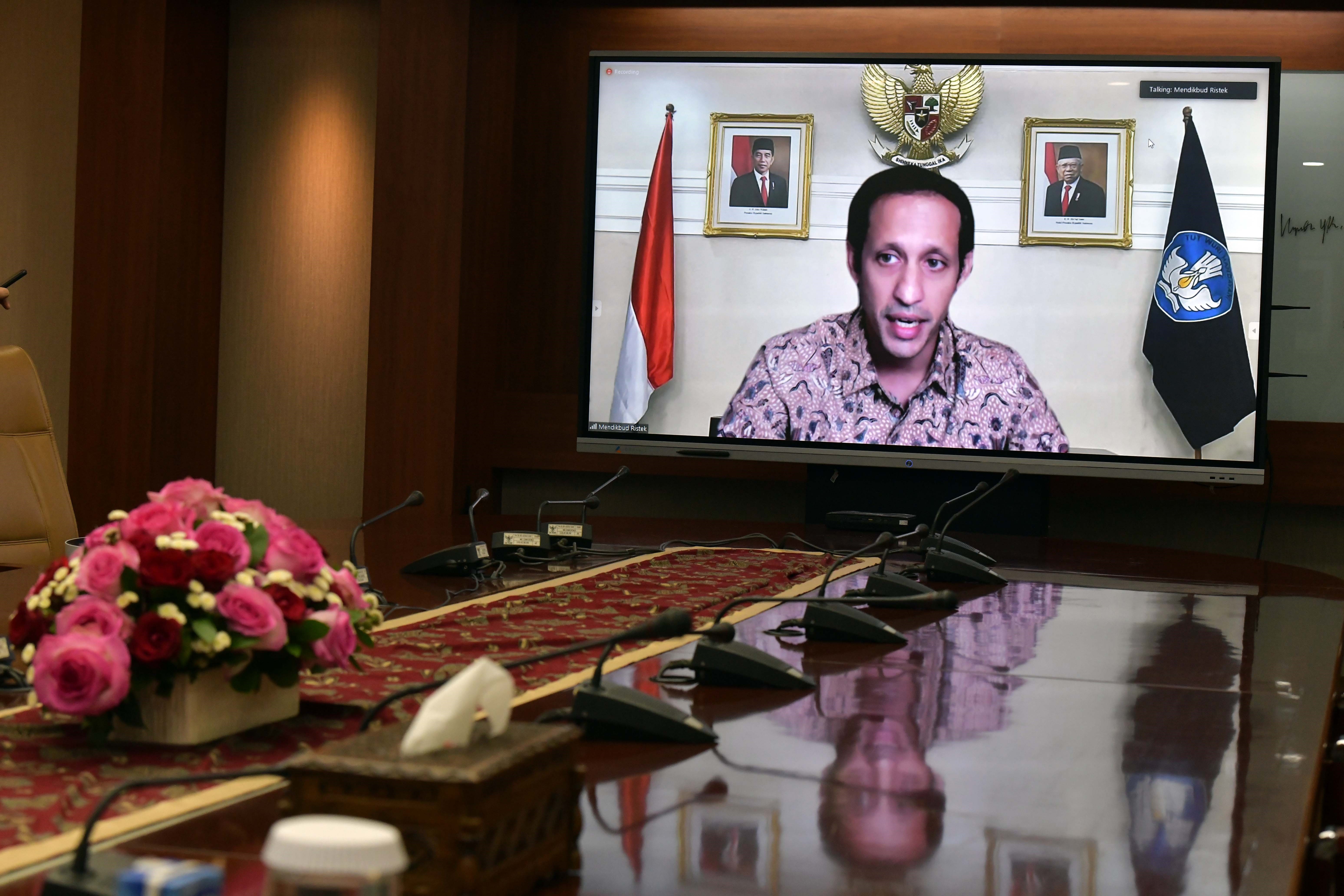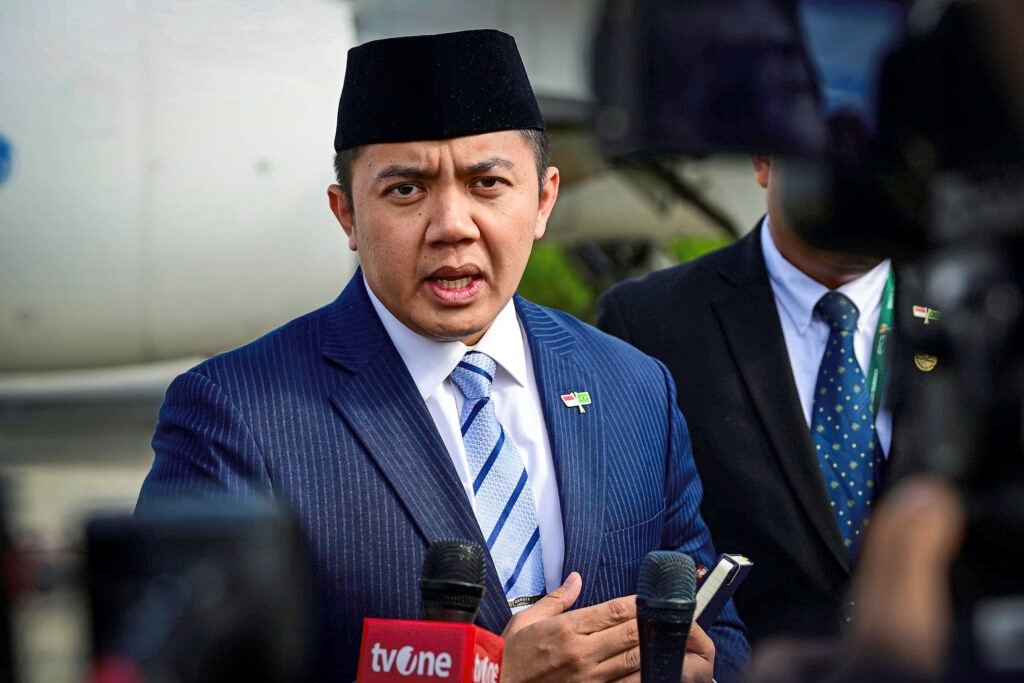Education Minister Clarifies Misconceptions about Limited In-Person Learning Cluster

Minister of Education, Culture, Research, and Technology Nadiem Makarim delivers press statement after attending a limited meeting on public activity restrictions (PPKM) evaluation, Monday (27/09). (Photo by: PR of Cabinet Secretariat/Jay)
Minister of Education, Culture, Research, and Technology Nadiem Anwar Makarim, Monday (27/09), clarified several misunderstandings about the issue of limited in-person learning cluster that has been circulating among the people.
First, there is a misconception about limited in-person learning cluster reaching 2.8 percent of education units in the past month.
“[2.8 percent] is the cumulative data [since July 2020], not the data in one month,” Nadiem said in his press statement after attending a virtual limited meeting led by President Joko “Jokowi” Widodo.
Second, it is uncertain that COVID-19 was transmitted in education units. According to Nadiem, the percentage is not the data on clusters but data on the number of schools that reported their school members who have contracted COVID-19.
“Members of 2.8 percent of the reported schools have contracted COVID-19. They might not have carried out in-person learning,” he said.
Third, the Minister asserted that the issue of 15,000 students and 7,000 teachers contracting COVID-19 during limited in-person learning has not been verified.
“That is based on raw data reports that have so many errors. For example, so many have reported the number of positive COVID-19 [cases] that is higher than the number of students in their schools,” he said while stressing that his ministry will cooperate with Ministry of Health to improve COVID-19 management in education units.
“Moving forward, we will have two collaborations with Ministry of Health. First, [the surveillance strategy] mentioned by [Minister of Health] Mr. Budi to ensure that schools support random testing/sampling facilities. We will specifically close schools if they have over 5 percent of positivity rate,” he said.
Nadiem also expressed optimism that the data acquired will be more valid, right on target, and beneficial, adding that the second strategy is integrating contact-tracing application PeduliLindungi and implementing it in education units.
“We fully support this program that will proactively detect [cases] and statistically will achieve a high level of accuracy to show whether we need to be worried or not,” he remarked.
On that occasion, Nadiem also expressed his concern on the low number of schools carrying out limited in-school learning, which may lead to learning loss.
“I am more worried that only 40 percent of our schools can carry out in-school learning. There are 60 percent of schools that are allowed to carry out in-person learning but have not [conducted it yet],” he said.
Nadiem stated that a number of studies have shown that learning loss can occur due to nonoptimal online learning.
“Data from the World Bank and many other research institutions have shown how scary learning loss can occur. This is beyond the psychological condition. [Students] in elementary schools and preschools need in-person learning the most. If schools are not opened, the impact can be permanent,” he said. (DND/UN) (DH/MMB)








